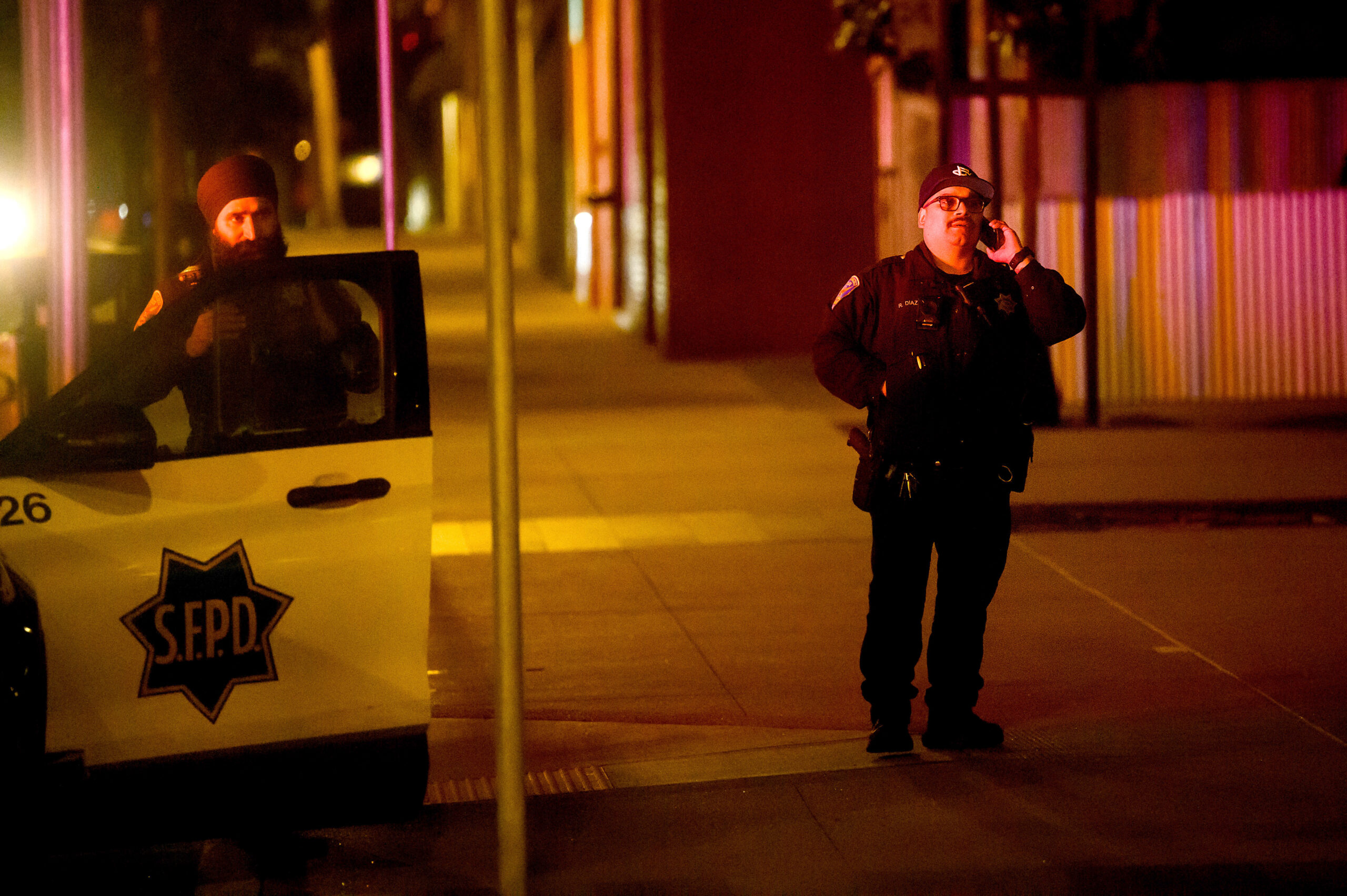Editor’s Note: Shortly after this story was published police arrested a suspect in Bob Lee’s killing. This piece has been updated accordingly.
Tech executive Bob Lee bled out from stab wounds on a dark San Francisco street nine days ago. While most homicides in the city garner little attention, the mystery around Lee’s death captured the eyes of the world.
It was a rare crime: A wealthy white man stabbed to death in an upscale part of a city where most homicide victims are people of color killed by guns.
Each passing day made the killing even more unusual.
That’s because unlike in most stabbing homicides, San Francisco police did not make an arrest for more than a week after the deadly attack. Police arrested a suspect in the case early Thursday, according to reports by Mission Local and ABC7.
A review of 32 stabbing homicides investigated by the San Francisco Police Department between 2017 and 2021 found that officers made an arrest—or identified the assailant—in 69% of the cases within the first week of an attack. When they didn’t, the investigations dragged on for months or even longer than a year before an arrest. SFPD closed all but three of the 32 cases.
John Skaggs, a retired Los Angeles homicide detective, said there’s nothing wrong with taking nine days, or more, to make an arrest in a killing.
“Some cases are harder to solve than others,” Skaggs said. “Some, the patrol cops catch the guy fleeing the scene, and then some take several months, if not years, to do the proper investigation.”
Making an arrest in the Lee case was important for more reasons than bringing closure to his friends and family. The killing has become a political lightning rod used to asail San Francisco and its Democratic leadership nationally, and even internationally. In the nine days since Lee died, his killing has stoked fears of unchecked crime, even as data shows that violent crime reports remain below previous highs. And San Francisco’s homicide rate is much lower than many other major U.S. cities.
Lee, the co-creator of the popular Cash App, died at San Francisco General Hospital on April 4 after police found him unconscious outside a Rincon Hill apartment building. He called 911 screaming for help around 2:30 a.m. that morning, telling the dispatcher that he was bleeding out and that someone had stabbed him. Surveillance footage from the area captured him clutching his side and appearing to ask passing motorists for help.
The department quickly closed earlier knife homicides for myriad reasons, ranging from a suspect killing himself to a victim naming her attacker in her dying breaths. Police solved one random fatal knife attack on Christmas Eve in 2019 after officers stopped the suspect a day later at the scene of another stabbing.
In rare instances, a fatal stabbing can take much longer to solve. SFPD only recently arrested a young woman suspected in a deadly Haight Street stabbing that occurred well over a year earlier. It’s unclear what led to the arrest.
Kevin Benedicto, a member of the civilian Police Commission overseeing SFPD, said an arrest in Lee’s case will resolve the sometimes “spurious” assumptions many people have made, including that the attack was somehow linked to the homelessness crisis.
“If the case is solved and an arrest is made, that will clear up the uncertainties,” Benedicto said. “Even if one is not made, it still doesn’t mean that we should be jumping to conclusions about what happened.”
Benedicto’s statements came before reports revealed police had made an arrest in the case.
Police have not said whether the knife attack was random. But fatal stabbings usually aren’t.
Of the 115 stabbing homicides in San Francisco from 2001 to 2021 in which police determined the victim and assailant’s relationship, the pair knew each other in 63% of the cases, according to data from the California Department of Justice.
At least a third of the stabbing homicides stemmed from some form of argument, including conflicts over money or a desire for revenge. Domestic violence was the second most common factor.
“Generally, your stabbings are going to be more intimate,” said Skaggs, the retired detective.
When random killings do occur, they can spark incredible fear because people can imagine themselves in the same unpredictable situation as the victim, said Joshua Harms, a criminologist with Middle Tennessee State University.
“When it’s a successful businessman walking down the street and just gets stabbed,” Harms said, “that’s terrifying.”
“We think, ‘Oh my gosh, that could happen any day to anyone,’” he said.
While San Francisco police don’t solve every fatal stabbing, the department has a pretty good track record when it comes to homicides overall.
SFPD’s homicide clearance rate rose from a low of 17% in 2008 to a high of 94% in 2018. The department solved about 75% of homicides in both 2020 and 2021, putting it above the gold standard of 70% sought by police chiefs, according to Skaggs. Across the U.S. in 2019, law enforcement cleared 61% of homicides, according to the latest FBI data.
